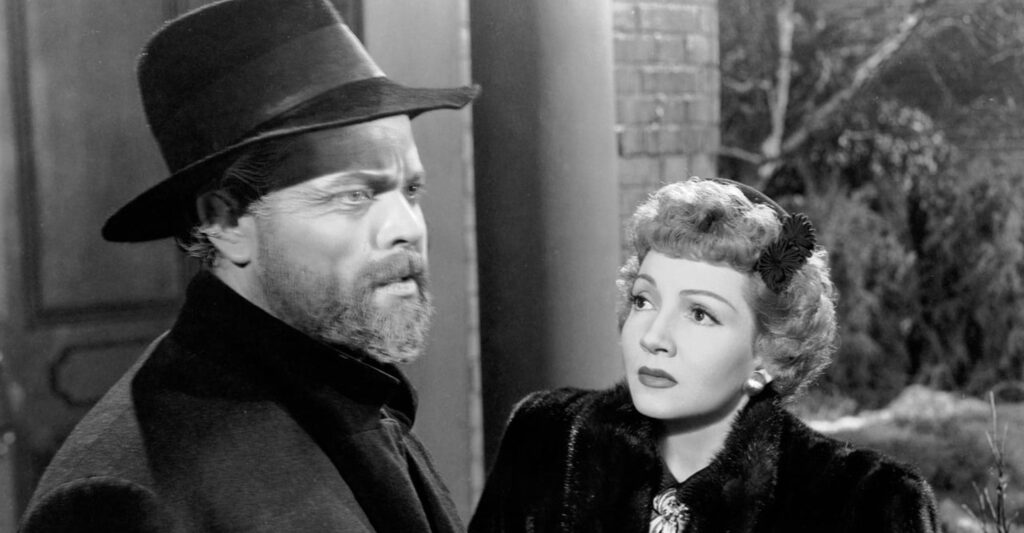`Woman, disturb me not now at the last,
But let me hold my purpose till I die.
Sit down again; mark me and understand,
While I have power to speak. I charge you now,
When you shall see her, tell her that I died
Blessing her, praying for her, loving her;
Save for the bar between us, loving her
As when she laid her head beside my own.’
-excerpt from Enoch Arden by Alfred, Lord Tennyson

Tomorrow Is Forever (1946) is one of the classic “weepies”. This sub-genre of melodrama focused exclusively on the classically feminine sphere. During and immediately after WWII these films grappled with the traumas the war wrought stateside. Screenwriter Lenore Coffee, adapting Gwen Bristow’s novel, is quite adept at articulating the duality within the film’s female protagonist; pinpointing the access to different aspects of her personality that different social roles require. Tomorrow Is Forever bristles with the anxieties of personas in fluctuation, torn between what they were, are, and can be.
In Tomorrow Is Forever Claudette Colbert continues her foray into playing mothers; bringing a verve and spontaneity to the part of Elizabeth Hamilton, who could very well be Anne Hilton’s sister (the character Colbert played in 1944’s Since You Went Away). Colbert specialized in maternal roles within the “weepie” genre, epitomized by her role as Bea Pullman in John M. Stahl’s Imitation Of Life (1934). In Tomorrow Is Forever Colbert leans into the two dominant aspects of her character’s personality with courageous abandon. On the one hand Elizabeth Hamilton is always the young wife and lover to her first husband John (an exceptional Orson Welles), even long after he has been pronounced dead. Then, on the other hand, Elizabeth Hamilton is a contented mother in middle age, finding delight in her children.
Typically in “weepies” the female protagonist’s journey from lover to middle aged mother forms the narrative thrust. The conflict here, with Elizabeth Hamilton, is that she exists as the two simultaneously. This imbalance in turn reflects the physical imbalance represented by the two central male figures. The first, John, has returned to Maryland nineteen years after being proclaimed killed in action during WWI with the new identity of Erik Kessler. The other primary male character is Elizabeth Hamilton’s second husband Lawrence (George Brent) who employs Kessler. This imbalance is only ever corrected once Kessler dies at the end of the film, extinguishing the final remnants of the young bride that Elizabeth once was.
Bristow’s novel is a modern retelling of Tennyson’s Enoch Arden with the focus shifted towards the woman’s perspective. Director Irving Pichel, an experienced hand at melodrama, brings a tenderness to the proceedings with his lingering close-ups and slow tracking shots. But it’s Coffee’s screenplay that really brings all of the pieces together. Tomorrow Is Forever is soapy, campy, heartbreaking, and everything else you would expect; except there is a sense of foreboding that lingers, teasing the inevitability of the film’s final, tragic reel.
